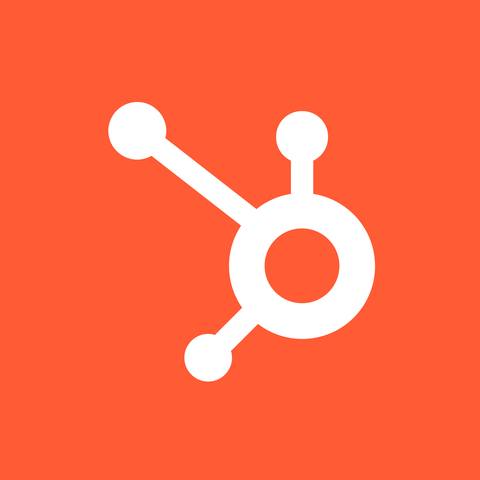

Amplitude Analytics Reviews & Product Details
Amplitude is an analytics tool designed to support businesses by helping them understand user behavior and giving them key insights that can help them improve their products. It offers tools such as behavior tracking, funnel analysis, as well as A/B testing that combines to help companies make data-driven decisions that optimize products and drive business growth.


| Capabilities |
|
|---|---|
| Segment |
|
| Deployment | Cloud / SaaS / Web-Based, Mobile Android, Mobile iPad, Mobile iPhone |
| Training | Documentation |
| Languages | English |

Ability to use funnels which gives us a deep understanding of our user behaviour. Another very powerful feature that we really like is the HTTP API which solved a lot of our tracking issues, right now we track a user from sing up onwards, even if they have an AD blocker, we get stats which is hard to get via other tool like Google Analytics. Ability to have more than one team and more than one dashboard is another feature that we like, which gives each team have the freedom and control on what they want to track. The generous event limitation is also another thing we like and appreciated.
The high price tag to upgrade, I think you should have a more reasonable packages to pick from, especially with team with little budget and in early growth and integration state. I would love to be able for example to purchase some features that will elevate my experience, without the need to purchase a hefty package to unlock some of those features. Also the new released feature with destinations does not include enough destinations and does not explain if new ones are coming.
Understanding user behaviour, tracking backend events and connecting frontend and backend actions via user id. The flexibility the Amplitude has gave us better understanding on what our needs and we were able to break down the events and data further and create more charts and funnels, thus able to segment our users further.
Amplitude makes it really easy for developers to add metrics in to an app in a few lines of code. While at the same time, the powerful charting capabilities make it easy for product owners to build and tweak their own reports to gain insights to how the app is used. There's even a generous free tier so you can get started straight away and try it out in your own app.
There is a learning curve to creating charts but overall the UI is quite straight forward. When you try to dive a bit deeper in to the data (e.g. custom functions, exports, etc) there is still some room for improvement.
Amplitude has allowed us to gain insights in to what features our customers are using the most and to visualise their journey through the app.
Amplitude's user interface is the most consistent I've ever seen. Once you get going with the chart filtering and selection panel, it gets addictive. It is a highly iterative and composable environment, where staff with no strong technical expertise in reporting or business analytics can feel safe in giving it a go, and ask complex questions about user and account behaviour.
The free version is extremely limited in extracting real insight from the product that you can show to stakeholders and justify an upgrade. There is no account-level tracking features out of the box, which are essential to any SaaS business. If you don't have a good taxonomy plan to start the journey, you are in an uphill battle with trying to achieve buy-in.
We've been trying to address the issue of not having strong segmentation groups within our business. The product has enabled us to quickly determine who are the activated users, power users, onboarded users, and so on. From there, we were able to capture experimentation groups based the state of these active segments, and the patterns that they exhibit (e.g. dropping off from certain conversion funnels). The main benefit derived from this functionality was agility in experimentation.
Very easy to set up on a variety of platforms, and building dashboads is intuitive and not cluttered. A staggering amount of functionality for the free tier of the App.
Can sometimes be tough to debug initially, getting revenue set up has been a challenge
All of our user behavior is tracked through Amplitude, which allows us to see the popularity of individual features and measure engagement. We've been able to use that data to inform future decisions as well as provide it to key stakeholders to track progress
Realtime data I trust the Amplitude data more than any other analytics services I can set any JSON data as a parameter and view analytics by it. Very high level of customisation of event. Easily create any report: funnels, segmentation. Very useful feature — Function in Segment report. I often use it to create a distribution level of any users behaviour. A very useful feature is sharing report between our colleagues: I can easy sent a link to a chart and my colleague can start to explore the chart from same point. The possibility to view any users events step by step is a highly useful feature when we try to find insides in certain users behaviour. Possibility of the sent event from a different source (web, mobile app) by one user. It helps us with understanding the in-app purchase scenario.
Price is really high, but it was a problem when I had worked in a big company. Difficult to count revenue by default implementation with "Revenue" Event, if use the trial and subscription model for monetization mobile app.
I understand all users behaviours, main metrics and, of course, find out the insides of my app. The possibility to view any users events step by step is a highly useful feature if I try to find insides in certain users behaviour.
Comprehensive and ready to use templates for product analytics. For almost everything you want to analyze for your product, you can find a way to analyze it in Amplitude with their templates and charts. My team and I used to run complex SQL queries, python/R scripts, and statistic models to do track, analyze and the product's health, and to explore leading indicators for purchase or retention. With Amplitude, I can get the insights, learnings within seconds, with no code written and no model built.
The event tracking and data taxonomy set-up and maintenance is a pain.
Improve user engagement, optimize conversion and drive user retention. Time-saving in reporting and analytics.
The best part about Amplitude is the ease with which you can get right to insight that's most essential to Product teams, without having to lean on a BI or data science team that you likely don't have or can be tasked with more important work.
My number one gripe is that I wish I could build more complex dashboards and have more flexibility in the UI canvas. There's too much white space reserved.
Maximum insight into the metrics that are most relevant to what's happening in the product at that time.
It's a complex product, but really easy to use. As a PM leader in the organisation, I preach to PM's the 'build, measure, learn' mantra all day, every day, but it's really hard to ensure that measurement actually happens. Amplitude is so intuitive, and makes is so easy to dive straight into a user funnel, and start segmenting, that there's no excuse anymore. It creates a culture of experimentation and accountability. Love it!
We have a two-side marketplace, and certain critical business funnels effectively span two different users' sessions. Given that a funnel is created around a user ID, it's impossible (or at least very hard without duplicating events) for us to create an end-to-end funnel. I realise that limitation comes from the nature of our business, and I imagine other two-sided marketplaces are experiencing it, but it would be awesome if you guys came up with a way to tackle that - perhaps another identifier that we persist on both sides of the marketplace, such as a transaction ID? I dunno. You da analytics magicians.
Measuring impact of a given feature or experiment to the users' behaviour, and being able to segment is absolutely priceless for us. Hoping to unlock more value with the the other features that we haven't truly explored yet.
Behavioral cohorts. being able to analyze based on behavior is key
I find the process of creating dashboards to be somewhat limiting and challenging to convey all of the information that I want to continually monitor
Our clients like to make decisions just based on their guts Amplitude helps us back up decision making with facts
Visualizing data easily, it is great for our app metrics
I haven't run into many problems, the most was historical data took some time to set up
We are able to view app feature use which has helped with making decisions around the app.
It’s easy to use and gives me visibility into our product usage through feature tracking and funnels.
Nothing that I can think of. Love this product
Product adoption
Everything: cool customization, nice interface, easy setup
1) Very expensive premium plans; 2) I can't make funnels like "see picture -> like picture" broken down by picture_id present as a parameter in both events
Advanced features analysis. The main benefit is that Amplitude works much faster then its competitors and in most cases has better customization
Where do I start? I've been through KISSmetrics and Mixpanel in the last 5 years, and Amplitude is hands down the leader in the space. The base UI for modeling and displaying data is great, you can pull people from throughout the organization into Amplitude and it will not be confusing for them. Best in class retention metrics too, tell Amplitude what 'winning' looks like, and it will tell you what types of customers fit that model. They have a very generous free product, give it a try. If you are starting out, I would recommend integrating Amplitude through Segment.
Hard to find a dislike here. It's possible to get lost in some of the deeper functionality. But overall, it's great.
Wanted one central, events based analytical tool that can measure our customer journey from end to end.
Ability to share and collaborate. Create a dashboard for personal use, and/or publish it to the whole organization so everybody else doesnt have to start from 0.
Doesnt cater well to the enterprise use case as much, but can work well if we spend time configuring and connecting data sources.
Our company wasn't as data driven as I wanted to and it was party because data was tough to source and analyze. Amplitude made it easier to source insights and then share with the entire company.
Ease of use Great customer support Ability to drill down to individual users Easy raw data access via Redshift
Merging users on different devices is hard to replicate in the raw data. It's not cheap. The chart optics are not very customizable.
Mobile app business intelligence. Amplitude helps us understand our users better and optimize our app experience for them.
Powerful yet easy to use. Really good on funnel analysis.
No complains until now, everything is working as expected.
Better understanding user behavior and product performance
I love how Amplitude has taken product analytics a step further than any other tool in the space. They are actively looking for ways to make finding insights less of a chore. Amplitude does a superb job of surfacing hypothesis and giving you a diving board for action that ultimately impacts your KPIs.
I have very little to dislike about Amplitude. I think some products might have focused more on regular reporting than Amplitude, and thus their recurring reports and distribution of reports is a bit more mature. That isn't to say Amplitude has done a fine job of catching up in that aspect as of late, but definitely less of a focus compared to some of the deeper behavioral analysis that we've come to value in Amplitude.
Amplitude does a great job of helping us monitor our KPIs as we introduce new experiments and ideas. There's nothing better for keeping a baseline and seeing the impact over time. Also, it helps us prioritize our efforts when it comes to development, as it offers hypothesis for us to dig deeper into.
Amplitude est un outil relativement simple à implémenter et très facile à prendre en mains. L'interface graphique très bien faite et la gestion très intuitive des cohortes permettent de mettre en place très rapidement des dashboards pour suivre les KPI comportementaux et de les rendre accessibles aux collaborateurs et au top management. La possibilité d'accéder à la base de données d'évènements (sous Snowflake) et d'utiliser les APIs est un plus afin de réaliser des analyses plus poussées et/ou d'importer les résultats d'Amplitude dans d'autres dashboards. Le support est très réactif, notre CSM (Tina) très à l'écoute et compétente et la roadmap d'Amplitude avance vite et dans le bon sens.
De par notre usage très intensif d'Amplitude, nous en avons quelques fois atteint les limites. Mais au fur et à mesure de l'avancée de leur roadmap, nous finissons par obtenir les features plus avancées dont nous avons besoin !
Nous utilisons Amplitude afin d'optimiser les parcours de nos utilisateurs dans nos applications, de l'acquisition à la conversion en passant évidemment par l'optimisation des métriques de rétention et le suivi des A/B tests. Amplitude nous a permis de rendre accessibles au plus grand nombre ces analyses et aux différentes équipes de pouvoir obtenir rapidement des réponses aux questions les plus fréquentes et simples sans forcément avoir besoin de passer par nos data analysts.
Amplitude is an easy-to-use tool, with intuitive features. It's apt for a quick and sufficiently in-depth analysis of trends
Certain features and functions, like group by PROPSUM, aren't self-explanatory
Temporal trends and Cohort analysis. Have identified quite a few root causes using Amplitude
The user experience is so friendly and easy, love the ways you can visualize the data and create very detailed dashboards. Amplitude offers a wide array of tools to understand in details your users behavior, from cohorts, to funnels, to lifecycle and retention analysis among many others.
Custom events tagging has to be really well done for it to be accurate
Improving conversion rates thanks to the funnel analysis, following up on daily & monthly KPIs, helping identify and fix issues, understanding the behavior of certain segments of users






